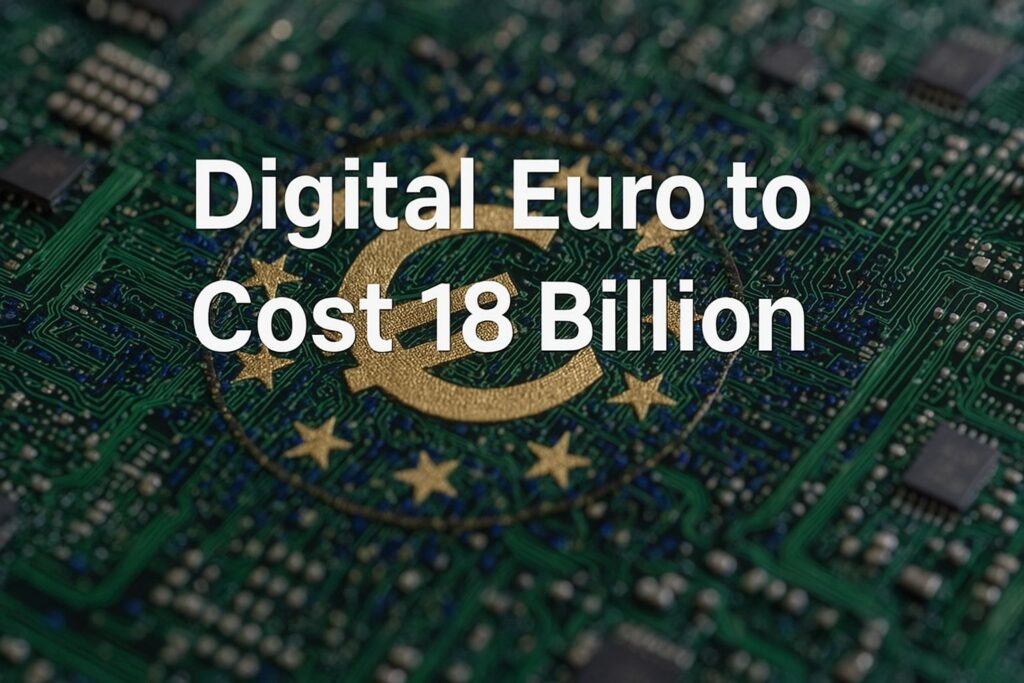In today’s rapidly evolving financial landscape, the concept of a digital currency is gaining traction, with nations around the world exploring its potential. The European Central Bank (ECB), for instance, is considering the introduction of a digital euro to reinforce Europe’s financial sovereignty in this digital age. However, opinions are divided, with some experts advocating for decentralized alternatives like Bitcoin. This article delves into the recent findings from PricewaterhouseCoopers (PwC) regarding the potential costs of implementing a digital euro, while also examining Bitcoin’s place as a robust digital currency. We aim to provide comprehensive insights to help you navigate and understand these complex topics in the financial sector.
Exploring the Digital Euro: Costs, Implications, and Alternatives
The European Central Bank’s Vision for a Digital Euro
The European Central Bank envisions a digital euro as a vital tool in maintaining the eurozone’s monetary sovereignty. As cash usage declines, a digital euro could function as a secure, widely accepted legal tender across Europe, reducing dependence on foreign technology for payment processing. Importantly, it could ensure the ECB maintains oversight over the region’s financial systems.
Amidst these considerations, local retail banks express concerns about the potential financial burden. Thus, PwC was commissioned to estimate the costs of introducing a digital euro.
PwC’s Study on the Digital Euro: Financial Implications
PwC’s Digital Euro Cost Study, requested by various European banking associations, outlines that launching a digital euro could cost up to €18 billion. The study suggests that the ECB should develop a compensation model to fairly distribute these costs among stakeholders, ensuring local banks are not disproportionately affected.
Bitcoin: A Decentralized Alternative
Contrary to a centrally-controlled CBDC (Central Bank Digital Currency), Bitcoin represents a decentralized financial instrument free from government interference. With a finite supply of 21 million BTC, it remains immune to inflationary policies often associated with traditional fiat currencies. This decentralized nature appeals to those who value financial privacy and security, as Bitcoin transactions are pseudonymous, not tied directly to personal identities.
Bitcoin’s infrastructure is open to everyone, allowing individuals and developers to innovate and benefit from its growth without waiting for central bank approval.
Investing in the Bitcoin Ecosystem
Regardless of the ECB’s decisions, Bitcoin continues to be a significant force in the financial world. Major corporations like Mastercard, Visa, and JPMorgan are increasingly integrating crypto into their operations. This movement is indicative of Bitcoin’s potential to reshape the global economy.
For investors looking to capitalize on Bitcoin’s success, several innovative projects offer promising opportunities.
1. Bitcoin Hyper ($HYPER): Enhancing Bitcoin’s Utility
Bitcoin Hyper ($HYPER) is a Layer-2 solution designed to tackle Bitcoin’s transaction speed and scalability challenges, allowing it to compete with faster blockchains like Solana. By utilizing the Solana Virtual Machine (SVM), Bitcoin Hyper facilitates rapid, low-cost transactions suitable for DeFi, NFTs, and online gaming. The project’s presale has raised over $1.3 million, with a significant potential ROI.
2. Best Wallet Token ($BEST): The Future of Crypto Wallets
Investing in the Best Wallet Token ($BEST) supports the growth of a top-notch non-custodial crypto wallet offering seamless cross-chain swaps. Holding $BEST entitles investors to enhanced staking rewards, lower fees, and governance rights, positioning it as a strong contender in the burgeoning crypto wallet market.
The Indomitable Bitcoin
Bitcoin’s decentralized structure and proven resilience make it a compelling option amidst debates over digital currencies. As always, while exploring these opportunities, cautious and thorough research is advised to make informed investment decisions.
FAQs
Is Bitcoin a better option than a digital euro?
Bitcoin offers advantages such as decentralization, limited supply, and enhanced privacy, making it attractive for investors seeking an alternative to centrally-governed currencies like the proposed digital euro.
What are the potential challenges with a digital euro?
Implementing a digital euro involves significant costs for local banks, as highlighted by PwC’s study. Additionally, it may raise concerns about privacy and surveillance compared to decentralized options like Bitcoin.
How can investors benefit from Bitcoin’s growth?
Investors can explore projects like Bitcoin Hyper and Best Wallet, which aim to enhance Bitcoin’s utility and infrastructure, offering potential profitability as the Bitcoin ecosystem expands.
What role do corporations play in Bitcoin’s adoption?
Major companies incorporating Bitcoin into their payment systems and investment strategies reflect growing confidence in cryptocurrency’s future, which may drive further adoption and innovation in the sector.
This comprehensive guide provides a thorough exploration of the digital euro initiative and Bitcoin’s enduring potential. Leveraging best practices in the financial industry, we aim to equip readers with the knowledge needed to navigate these developments strategically.

